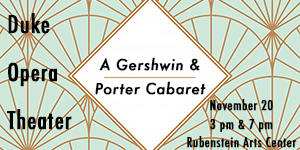The North Carolina Bach Festival, officially incorporated in 2018,* is a multifaceted network of programs and events dedicated to celebrating Bach and his Baroque contemporaries. One of the festival’s main pillars (and perhaps its most important) is engaging young performers and musicians. This season (titled “Year One,” to celebrate the Festival’s “reinvention”) featured both an youth concert and a young artists concerto & aria competition, but in between was an event called “Beer and Bach.” What better way to involve a younger (well, at least over 21) audience? For the second year in a row, this collaboration between the NC Bach Festival and Trophy Brewing Company treated the audience to a Baroque concert right in the middle of the brewery. This year, the untraditional space featured a trio: soprano Molly Quinn, violinist Nicholas DiEugenio, and Daniel Swenberg playing the theorbo, lute, and Baroque guitar. In addition to this musical experience, the audience was served Trophy Brewing’s featured “composition” – A Composition in Hops: Fuguebier.
In the spirit of youth involvement, the concert was opened by expressive 11-year-old violinist Alexandra Varchenko. This young musician had also appeared in the youth concert, playing J.S. Bach’s Sarabande and Double from Partita No. 1 with fluent double stops and leaping yet connected melodies. Then Quinn made her dramatic entrance with Monteverdi’s Prologue from L’Orfeo. It was immediately apparent that Quinn’s voice is very well suited to the intricate Baroque style and ornamentation, even matching the slight pitch bending heard in the violin. Even though the printed program didn’t include translations, Quinn’s dramatic expression told the story of opera excerpts and art song alike, along with some spoken summaries. Swenberg, playing the theorbo for most of the concert, created the Baroque atmosphere – sometimes in sparse recit style or sometimes more intricate strumming, always flowing with the rubato of the other two musicians. Often, DiEugenio played a countermelody to the vocal line, with smooth, sparing rubato.
Pandolfi’s sonata “La cesta” (Op. 2, movement 3) gave our singer a break and allowed the two instrumentalists to interact directly with one another.
In true Baroque fashion, many of the pieces in the concert’s second half involved love – usually unrequited or involving some form of anguish. Several songs, like Barbara Strozzi’s “Amor dormiglione” or Monteverdi’s Quel sguardo sdegnosetto” strung together imagery of Cupid’s arrow as a bringer of love (or lack thereof). Quinn portrayed this petulance well, with insistent but light vibrato throughout. With the accurate period instruments and ornamentation, one could almost imagine these pieces to be the “pop songs” of a 17th century audience. Combined with the unique, intimate atmosphere at Trophy, this experience was rather remarkable.
This “Year One” of the NC Bach Festival has come to a close, but the future of this organization and its involvement with musicians and youth from all over North Carolina hold a lot of promise.
*Various incarnations of the NCBF date back to the late-’70s, when the then-Raleigh Oratorio Society performed Bach’s St. John Passion as the opening work in this series.











